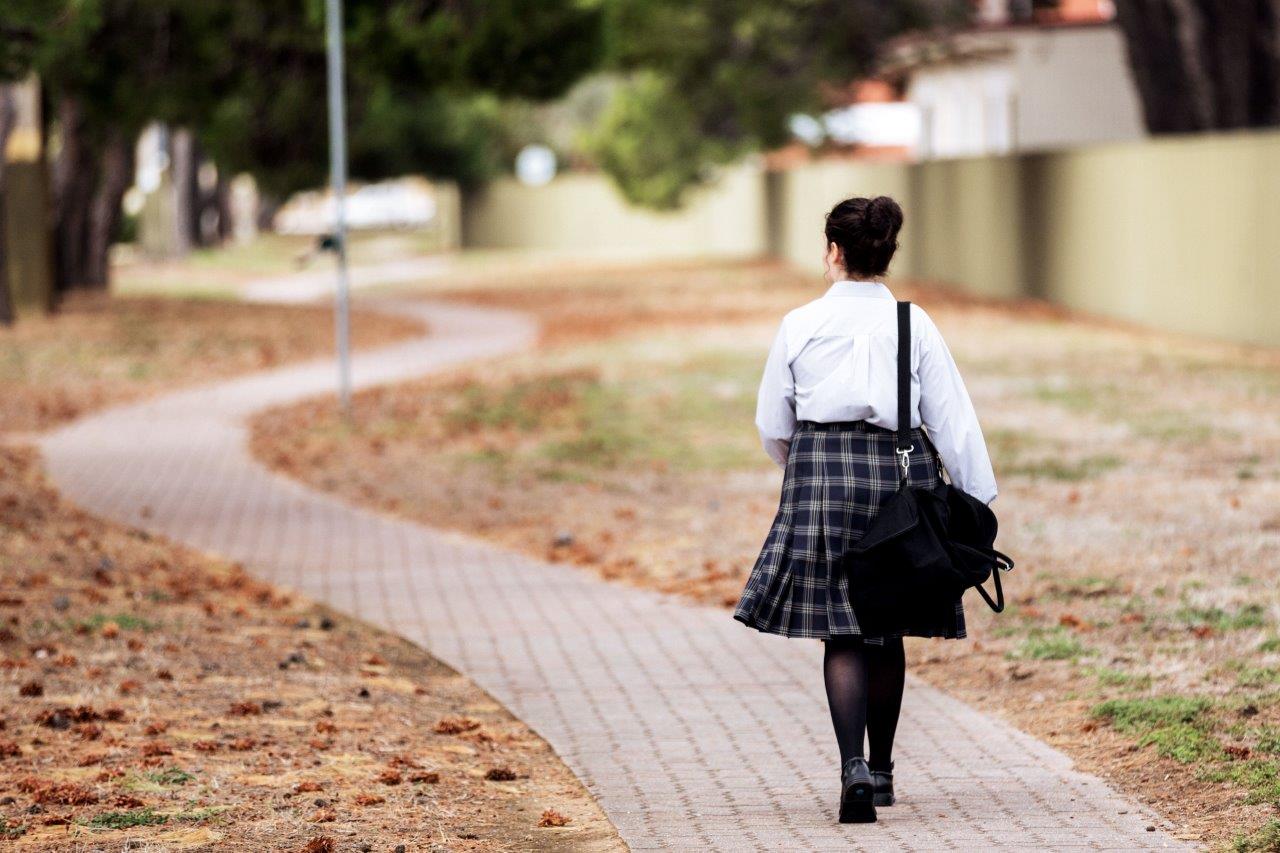Sometimes though, the idea of going to school can be cause for severe distress for a young person and can result in a reluctance to go to school and an increase in nonattendance. High levels of distress and a reluctance to go to school is known as school refusal.
Young people might appear to be feeling ill or unhappy the morning before school with a desire to stay home. They might have an emotional reaction at the idea of leaving for school in the morning.
There are often several factors that can contribute toward the development of school refusal behaviours including individual, family, school and the community. A young person may be experiencing anxiety, their parents may be separating, they may have transitioned from primary to secondary school or experiencing challenges with peers such as bullying. There can be a range of underlying factors that result in severe distress associated with school.
School refusal is different from truancy, as often family and friends know that a young person is not attending school. Often, family and friends are unable to get a young person to attend school despite their best efforts.
The good news is that with some strategies and the right support, things can get better for your young person.
Effects of school refusal
School refusal can negatively impact a young persons’ learning and development. It can affect friendships as well as social standing due to missed opportunities to connect with friends and other students.
The longer the issue persists, the more difficult it can be for your young person to get back into the routine of going to school, so it’s important to respond early.
Signs to look out for
School refusal can manifest in many ways. Things to look out for might be:
- distress and anxiety about going to school
- tearfulness before school, sometimes resulting in conflict with family members
- frequent complaints of physical illness before or during school including headaches, tiredness, stomach upsets or diarrhoea
- poor teacher/student relationships
- refusal to get out of bed, leave the house or get out of the car to go to school
- difficulty attending school after disruptions to usual school routines such as holidays, school sporting events or school camps
- frequent absences from class including being late or periods spent in the sick bay.
What contributes to school refusal?
This is complex and differs for each young person. There might be a few contributing reasons that lead to school refusal:
- anxiety related to being separated from family
- worry related to social interactions
- changes to school environment such as transitioning from primary to high school or to a new school
- learning difficulties or conflict with teachers
- anxiety about exams or public speaking
- being affected by bullying or friendship difficulties
- an unsettled family life – separation or divorce or illness.
How to support your young person return to school
If you’re caring for a young person who is refusing to go to school, early action can help prevent behaviours from becoming longer-term habits. Modelling effective communication and problem solving at home can encourage your young person to do the same.
You can support your young person by:
- finding a time when you both seem calm, then ask your young person about their concerns and worries about school. These issues can start to be addressed if they are known. Sometimes it can help to ask direct questions:
- are you being bullied?
- are you struggling with the school work?
- are you having issues with the teachers?
- is something else bothering you?
- exploring different ways your young person can try to manage their worries. Focus on their strengths and ways to positively engage in day-to-day activities
- learning relaxation techniques together, such as breathing exercises, or meditation, to help reduce feelings of stress and anxiety
- creating a plan together that explores ways to manage the beginning of the school day, school term, school year, social situations or school work, depending on what is troubling your young person
- speaking to the school and developing a collaborative plan. A clear and well understood plan between a young person, parents or carers and the school can be a useful tool in addressing school refusal
- considering if your young person may benefit from professional support to assist them with strategies and to better understand the underlying reasons for their school refusal.
Self-care for parents
Caring for someone who is experiencing school refusal can leave you feeling stressed, worried and anxious. It’s important to look after yourself during these times. By doing so, you are also modelling good self-care for your young person.
The headspace Clinical Reference Group oversee and approve clinical resources made available on this website.
Last reviewed 7 September 2021
Get professional support
If you feel you need help there are a range of ways we can support you.
